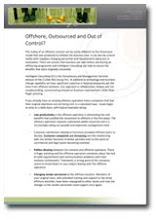Two key areas in particular from the recent Budget affect the recruitment sector, and those in the recruitment supply chain.
1. ‘IR35 / Intermediaries Legislation’
The Budget announced the start of a dialogue between HMRC and stakeholders on the best way to reform IR35 legislation, with the Government wanting to find a solution that protects the Exchequer and (in their words) improves fairness in the system.
Whilst the Government recognises that many individuals choose to work through their own limited company, where people would have been employees if they were providing their services directly, anti-avoidance legislation commonly known as IR35 (introduced in 2000) requires that they pay broadly the same tax and National Insurance as other employees. As highlighted by reports from the Office of Tax Simplification and the House of Lords, the Government believes IR35 is not effective enough, with non-compliance in this area estimated to cost over £400 million a year.
2. Travel and subsistence
The Government intends to consult on detailed proposals to restrict tax relief for travel and subsistence for those working through an employment intermediary and under the supervision, direction or control of any person.
A twelve-week consultation was launched 08 July 15 (changes intended to take effect from 6 April 2016). The intention of these proposed changes is to prevent temporary workers employed through employment intermediaries, and their employers, from benefiting from tax relief for home-to-work travel expenses; relief is not generally available to other workers employed directly or through temporary work contracts.
A series of round tables are being planned by HM Revenue and Customs over the summer, in order to facilitate dialogue, improve understanding of the proposals and to help develop responses to the consultation.
The consultation is very similar to the Onshore Employment Intermediaries Consultation, proposing the use of the same supervision, direction and control tests. Where the worker is subject to the right of supervision, direction or control then the payment intermediary (which could be the umbrella company or the worker’s personal service company (or ‘limited company’) cannot offset or reclaim any reliefs on travel and subsistence expenses incurred.
Bear in mind we are only at consultation. Regardless of what we end up with, one thing is very clear: the assessment of supervision, direction and control will be critical. Failure of this test may see a worker’s income from an assignment fall, which in turn may put pressure on rates. The limited company worker currently paying themselves outside IR35 may find they have to move to a deemed payment calculation as they would now be caught.
As the proposals stand, it is clear that detailed discussions will be required between recruiters and their clients to ensure the implications are fully understood and appreciated.
3. Increased funding for HMRC
You may already be aware the Government have an aggressive approach to identify and penalise individuals using tax avoidance schemes. The Chancellor emphasised this message in the latest Budget, with additional funding for HMRC of £750,000 to encourage investigations into this area.
Conclusion
It is clear that the combined effect of all of these changes will result in significant changes for the sector.
With a discussion document being published shortly re IR35 and RSG taking an active part in the consultation and round table, details will be provided as these progress.








No comments:
Post a Comment